contributors
Arina Tsukanova

Independent analyst and researcher.
all articles
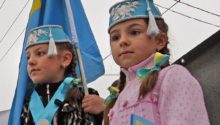

The West does not get the full truth about lives and aspirations of the Crimean Tatars, a Turkic ethnic group traditionally living in Crimea. There are a lot of myths on their history and destiny, created by interested foreign parties. The author will try to show the facts to help the readers make their own conclusions…
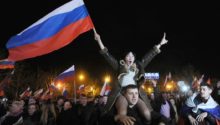

…For three years the Western democracies have been turning a blind eye to the historical choice made by the people of Crimea. Ukraine has repeatedly tried to challenge this choice through provocations, blockades, and blackmail. However, the people of Crimea used to live without electric lights or heat and to endure inconveniences and deprivations, if only to avoid becoming once again part of Ukraine.
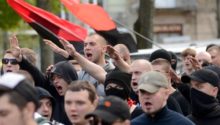

In a referendum on 16 March 2014, the Crimean people once again confirmed their historical choice, just as the United States once did when they broke away from the British Crown. In the US Declaration of Independence, it says that the Creator endowed people with unalienable rights to life, liberty, and the pursuit of happiness. Just like Americans, Crimeans also want to live, be free and be happy. That is precisely why they spent decades trying to break away from the Ukrainian trident, something they finally managed in 2014 when they returned to Russia.
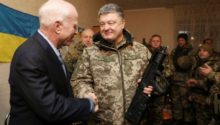

So we have a battle between two devious plans: the devious plan of Ukraine’s fourth richest oligarch against the devious plan of Ukraine’s sixth richest. Each of these devious plans is written from the perspective of personal gain…
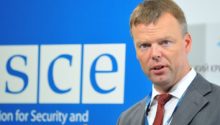

Alexander Hug, the Deputy Chief Monitor of the OSCE Special Monitoring Mission (SMM) to Ukraine has paid an unexpected visit to Donetsk, in order to meet with the leader of the Donetsk People’s Republic (DPR), Alexander Zakharchenko, who was «a signatory to the Minsk agreement». Hug urgently needed to hold a «constructive discussion» with the head of the DPR – as he told reporters after the meeting, so that «the OSCE SMM is able to support and assist the leaders of the DPR in solving a number of problems». Hug also noted that «Mr Zakharchenko» had been entrusted with a «very serious responsibility»…
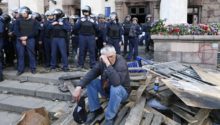

The 13th report of the UN High Commissioner for Human Rights on the human rights situation in Ukraine between 16 November 2015 and 15 February 2016, when the Minsk Agreements were in force, has come as a shock to Kiev…


On January 15, Russian President’s aide Vladislav Surkov and Victoria Nuland, the US Assistant Secretary of State for European and Eurasian Affairs, held consultations on the Minsk agreements for Ukraine settlement. The meeting took place in the Russian President’s Yantar state residence located in the town of Pionersky near the city of Kaliningrad. It lasted about six hours…



